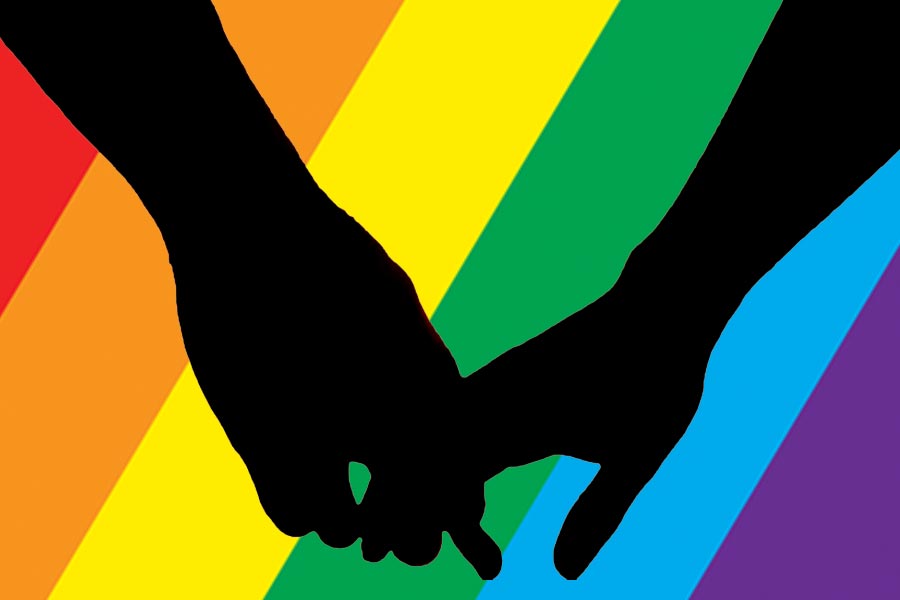Gay and lesbian couples are not getting the same paid parental leave as their heterosexual counterparts, according to a new study published this month from the University of California, Los Angeles (UCLA), and for gay fathers, the numbers are even lower than for lesbian parents. According to researchers, this puts gay and lesbian couples at a financial deficit should they choose to spend more time at home with a new baby or newly adopted child.
The UCLA study examined laws in 34 member countries belonging to the Organisation for Economic Co-operation and Development (OECD) that offer paid leave to new parents. The study was published in the Journal of Social Policy.
Of the 33 countries with national paid parental leave, researchers found same-sex women couples received equal amounts of paid leave to different-sex couples in only 19 of them, while same-sex male couples got equal amounts of leave in only four.
The U.S. was the only nation in the group that offered no national paid parental leave to new birth parents.
According to the study, laws in most countries did not prohibit same-sex couples from paid leave, but policies only referenced heterosexual couples and did not acknowledge same-sex couples. Same-sex marriage is legal in only 29 countries, as well as in some cities in Mexico, and gay sex remains illegal in 76 countries.
To determine the length of paid leave available, the study looked at “key indicators covering the length of maternity, paternity and shared parental leave” set out in government policies and explored whether those policies were worded in ways that included or excluded same-sex couples.
The length of paid leave available was widely different according to country, with different-sex couples receiving between 13 and 184 weeks of paid leave. In comparison, same-sex women couples were entitled to between 12 and 164 weeks, while the duration available to same-sex men couples ranged from nothing at all to 156 weeks.
On average, same-sex female couples had three fewer months of paid leave than different-sex couples, while same-sex male couples got about five fewer months than their heterosexual counterparts, according to the research. The study did not address transgender or nonbinary couples.
Australia, New Zealand, Iceland and Sweden were the only countries to offer the same paid leave to all couples, ranging from 18-70 weeks. Turkey did not offer gay and lesbian couples any leave while Switzerland offered no paternity leave to men of any sexual orientation.
Adoption is a key component of parenthood for many gay and lesbian couples and the study found that three of the 34 countries provided no paid adoption leave. Nine countries banned adoption leave by same-sex couples. Of the remaining 22 countries, 19 provided the same amount of paid adoption leave for parents, regardless of whether they were in a same- or different-sex partnership. Of the 33 OECD countries offering paid parental leave for either birth or adoption, only four guaranteed equal leave for all parents regardless of their gender or partnership status. Adoption leave for same-sex couples ranged from 0-104 weeks, while heterosexual couples got months more time: 7-178 weeks.
Study author Elizabeth Wong said in a statement, “Many of the differences we found may be the indirect consequences of gender-restrictive language that assumes women are the primary caregivers and that every family has one mother and one father.”
Wong added, “These assumptions often undervalue the importance of fathers’ involvement. When they do, same-sex male couples and male partners of mothers are the most disadvantaged.”
The study also suggested that even in countries with broad parental leave coverage, the lack of supportive and inclusive language for same-sex couples was itself restrictive.
“While we didn’t find any legislation that explicitly prohibits same-sex couples from receiving paid parental leave,” Wong said, “the way policies are structured or worded can nevertheless stop [gay and lesbian parents] from claiming benefits. Policymakers can explicitly guarantee inclusion and equality for same-sex couples by removing gender-restrictive language and providing equal paid leave opportunities for fathers and partners as provided to mothers.”
Dr. Jody Heymann, former Dean of the UCLA Fielding School of Public Health and Founding Director of the WORLD Policy Analysis Center, said in a statement about the study, “Families benefit when all parents, regardless of sex, gender identity or sexual orientation, can access paid leave to care for and bond with their children.”
Heymann added, “Many of these laws have gender unequal assumptions about who is going to provide care and who is going to provide work–we have to undo them.”
A 2018 report from the WORLD Policy Analysis Center found that OECD countries that offered six months paid parental leave saw increased numbers of workers and no change to unemployment or economic growth, refuting any possible claims like those made by congressional Republicans that parental leave harms businesses. Expanding paid leave can also lead to reduced government spending on public assistance, according to the Institute for Women’s Policy Research.
